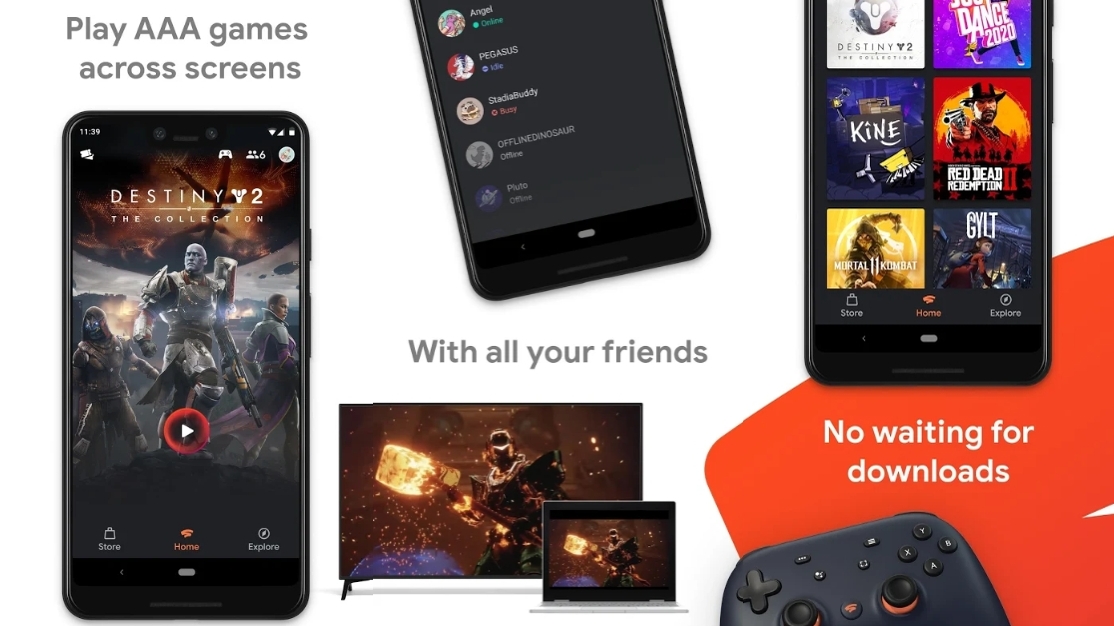
Sign up for breaking news, reviews, opinion, top tech deals, and more.
You are now subscribed
Your newsletter sign-up was successful
Google Stadia is finally ready to break free of Wi-Fi and be played on a 4G and 5G mobile connections using most Android devices.
It’s a feature Google has been working on for months and follows other Stadia Experiments that enabled touch controls for some games and widespread roll out of the Stadia app to most Android devices that launched in June.
Until now, subscribers have been able to use the game-streaming service on Android devices – but only when connected to steady Wi-Fi. Today’s news changes that.
According to a community blog post about it, Google says to opt into the latest 4G/5G experiment all you have to do is open the Stadia app on an Android phone, select Experiments under your profile, and then choose Use Mobile Data.
Is streaming on a mobile connection worth it?
Theoretically, streaming over your mobile connection could be a fantastic way to play your Stadia game collection anywhere, anytime.
We say theoretically because, on paper at least, both 4G and 5G connection speeds surpass Google's recommended connection speeds of 10Mbps down to play in HD. 5G can reach data speeds several times that rate, according to our 5G speed tests, so Stadia should theoretically play flawlessly when you're standing under a 5G tower.
The potential downside here is that all this gaming on the go could chew through your mobile data cap, if you have one. Google has warned in the past that using the service can eat up between 4.5 and 20GB of data per hour played, so you might want to play outside sparingly.
Sign up for breaking news, reviews, opinion, top tech deals, and more.
All that being said, having the extra option to play on the go is a neat perk of the service and, as long it works well, it could bring some gamers back to give the service another go.
- Need something to play? Don't miss our guide to the best Stadia games

Nick Pino is Managing Editor, TV and AV for TechRadar's sister site, Tom's Guide. Previously, he was the Senior Editor of Home Entertainment at TechRadar, covering TVs, headphones, speakers, video games, VR and streaming devices. He's also written for GamesRadar+, Official Xbox Magazine, PC Gamer and other outlets over the last decade, and he has a degree in computer science he's not using if anyone wants it.